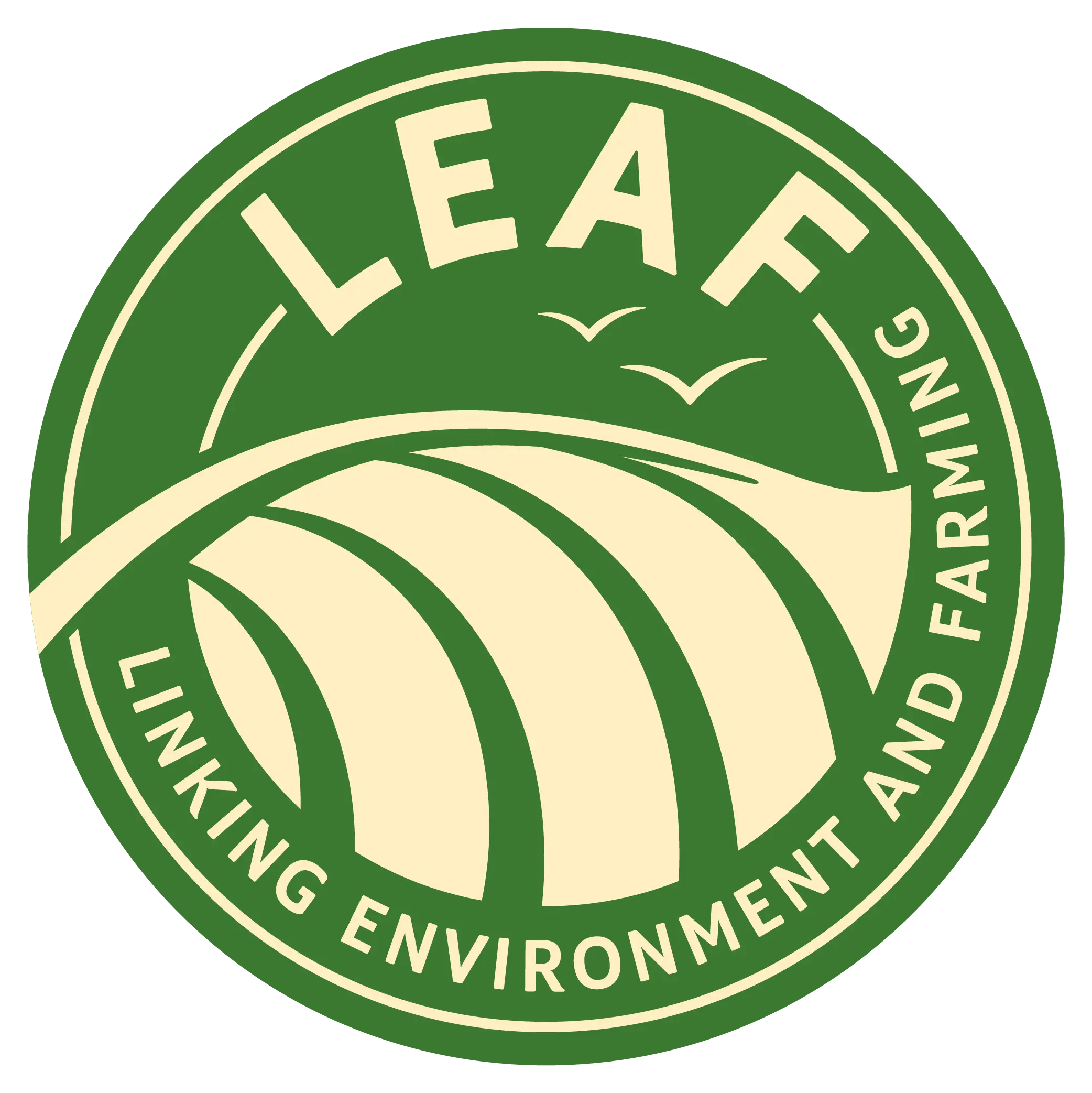- About Integrated Farm Management
- Our LEAF Network of Demonstration Farms & Innovation Centres
- Resources
- LEAF Sustainable Farming Review
- LEAF Endorsed Advisors & Consultants
- Our Projects & Partnerships
- Nature Based Solutions to Climate Change
- Beacons of Excellence
- Resilient & Ready
- Accelerating & Demonstrating the Journey to Net-Zero
Project NUE-Leg (Nitrogen Utilisation Efficiency Legumes)
Project NUE-Leg is a major UK Department of the Environment, Food and Rural Affairs (DEFRA) on-farm trial and research project looking to eliminate the dependence of UK grassland farming on applied nitrogen fertilisers.
Project NUE-Leg is a major UK Department of the Environment, Food and Rural Affairs (DEFRA) on-farm trial and research project looking to eliminate the dependence of UK grassland farming on applied nitrogen fertilisers.
About the Project
Project NUE-Leg is a collaboration between industry, plant breeders, nutritionists and biologists to achieve improvements in the capacities of legumes, such as white and red clovers, in combination with soil microbes, to fix nitrogen from the air and make this available to grasslands.
The project aims to create the conditions in a commercial farm setting that will enable clover to fix up to 300 kg of nitrogen per hectare per year, a large portion of which will be available for grass growth. At these levels, additional chemical nitrogen fertilisers needed for grass growth can largely be eliminated.
“This is a major step forward in helping minimise carbon footprints, reducing reliance on chemical fertiliser inputs, decreasing methane outputs of livestock as well as increasing the environmental efficiency of forage legume-grass cropping systems.” — Dan Stevenson, IFM Manager
Project Partners
The project brings together scientific expertise and global leaders in plant breeding and soil microbiology, agronomy, carbon emissions and the farming and food supply chain including:
- Aberystwyth University
- Germinal
- Agrecalc
- Origin Enterprises
- The James Hutton Institute
- Dovecote Park
- Pilgrim’s Pride
- Müller UK & Ireland
- CIEL Innovation Centre
We are also working with a number of our Demonstration Farms (see below) and Innovation Centres, and will be hosting a number of events both online and in-person throughout the next few years to share best practice (through Integrated Farm Management) and inspiring ideas for the future, based around NUE-Legumes!
Introducing our Project Farmers
Trenance Dairy Farm — Katie and Kevin Hoare
Katie and Kevan Hoare are tenant farmers, running a dairy and beef enterprise in Cornwall. They run a relatively intensive 3‑week grazing rotation on drought prone soil and use organic fertilisers wherever possible, including slurry digestate, to maintain the health of their grassland along with regular soil sampling.
Key reasons for taking part:
- To prove that legumes can withstand regular grazing
- Show how legumes can effectively reduce drought stress and soil degradation
- Build farm resilience to increasingly extreme weather events
Great Wollaston Farm — Rob Kynaston
Rob Kynaston is Farm Manager at Great Wollaston, a 242 mixed family family farm on the English/Welsh border, comprising 120 dairy cows and arable land. Rob is passionate about sustainability and utilises home-grown crops for the dairy herd’s forage. The farm is also home to skylarks, finches, yellowhammers, which are attracted by sensitively managed woodlands, wildlife corridors, ponds and field margins.
Key reasons for taking part:
- To understand how different legumes can increase protein levels in silage
- Reduce the farms overall reliance on fertilisers
“If you always do what you’ve always done, you’ll always get what you’ve always got.” ‑Henry Ford
Renner Farming — John and Charlie Renner
John and Charlie Renner farm North Bellshill and Amerside Hill, mixed farms located between Berwick-upon-Tweed and Alnwick, bordering the edge of Northumberland National Park. The farms extend to 202 hectares and focus on livestock farming, including a herd of Aberdeen Angus suckler cows and Texel and Suffolk ewes. The Renner family have a strong tradition of combining environmental care with sound, practical farming that runs right through the business.
Key reasons for taking part:
- To become the most sustainable grass-fed beef farmers in the country!
- See whether the new legume species will enable protein pellets to be removed from the cattle’s diets
“Grass protein conversion is key to a more profitable beef rearing business. We hope that Project NUE-Leg will help us to improve our efficiencies.”
Leckford Estate- Andrew Ferguson
Andrew Ferguson is General Manager of the Leckford Estate. The Estate, which is part of the John Lewis Partnership, is a regenerative business working in harmony with nature across its 2,800 acres. Their aim is to restore the landscape so that the Estate can be a place to live, work and enjoy now and in the future.
Key reasons for taking part:
- To get a better understanding of the most effective way legumes can be used in the current crop rotation (to feed 551 head of cattle)
- Increase the soil organic matter available to cash crops
Keep up to date with all things Project NUE-Leg via our IFM Quarterly magazine (exclusive to LEAF members), eBrief and on social media. Plus, look out for lots of inspiring events throughout the year!
